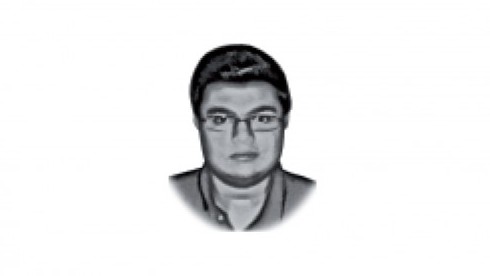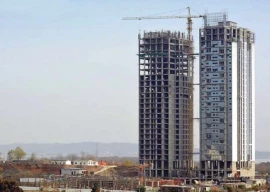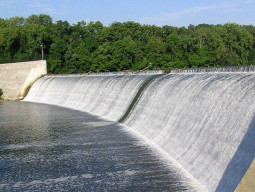
The furniture seemed like it had been bought right off from a teen dabbay wala, while the rest of the place had a very antiquated feel to it. Perhaps they were going for the ‘We are as the white man left us’ feel. Not a single computer was in sight. I am sure they have one though. I hope they have one. I mean, how can an office work without one in this day and age?
I understand that we don’t live in an affluent country, and that there are more pressing issues like poverty, unemployment and terrorism for the government to worry about before caring to improve the aesthetics of their buildings. But then again, and this part hurts my head when I think about it, there are other government buildings out there that do not share this state. In fact, they don’t seem like they share anything with other places in this country. It wouldn’t be fair to call them buildings. That would be an insult. So for my purpose I shall refer to them as ‘palaces’.
The president has one, so do the prime minister and all the other high ranking officials. I don’t have one, so it might sound like sour grapes. Maybe it is. Nonetheless, it is worthwhile to note that while the most minor discrepancies in our working conditions can cause annoyance, how do we expect the police or any other employee in the government to do their tasks properly and without complaints?
COMMENTS (12)
Comments are moderated and generally will be posted if they are on-topic and not abusive.
For more information, please see our Comments FAQ







1614423942-7/-ET-Burns-Road-by-Athar-Khan-(8)1614423942-7-270x192.webp)









Therefore, it is time to shun this self-destructives state of mind which views the police organisation as essentially evil, corrupt and incorrigible. Not every uniformed police officer is corrupt and ill-behaved. We must not carry a general, diffuse sense of dislike against the organisation but distinguish between those who are helpful and those who are not, and then demand reformation. The performance of a public service organisation like police hinges heavily upon a willing cooperation from the public. No police can perform its functions fully and successfully without the participation, cooperation and trust from the people it is trying to serve and protect. And it is impossible to deliver when constantly under a cloud of suspicion and mistrust. True, police officers are trained professionals, and expected to maintain a professional conduct and cool demeanour, but they are also essentially men and women like you and me, and have the same social, personal and psychological needs as you and I do. When they err, they also deserve to be viewed with a little indulgence and with a benefit of the doubt. More so as we all have a stake in the good and successful performance of this organisation. The criminal justice system is like the immune system of a society which is activated as soon as infections like crime and violations of rights enter a body politic by the unlawful actions of individuals. And law-enforcement is a key component of this system. Therefore, I am tempted to conclude that anything that weakens or destroys this immune system will interfere seriously with the health and sanity of a society, which is precisely what is happening now: just see the painful examples of you and me lynching and burning robbers in broad day-light, or politically motivated groups deciding on a course of target killings to suppress and quell dissent and difference of opinion. Police are a great instrument we can employ for conflict resolution in addition to fighting crime. But, someone has to revisit the role and model for policing we have today. We need to own our police up first, and then we can step in to work with them. Approaching this task with a view to rehabilitating a bunch of brutes is not a right mental attitude. They are not from the Mars; they are from among us. Empowering your law-enforcement is the only way you can help protect your society. You simply cannot leave them out there to their own tactics. Every society bears a basic responsibility to provide for, support, guide, monitor, supervise and stand with its law-enforcement.